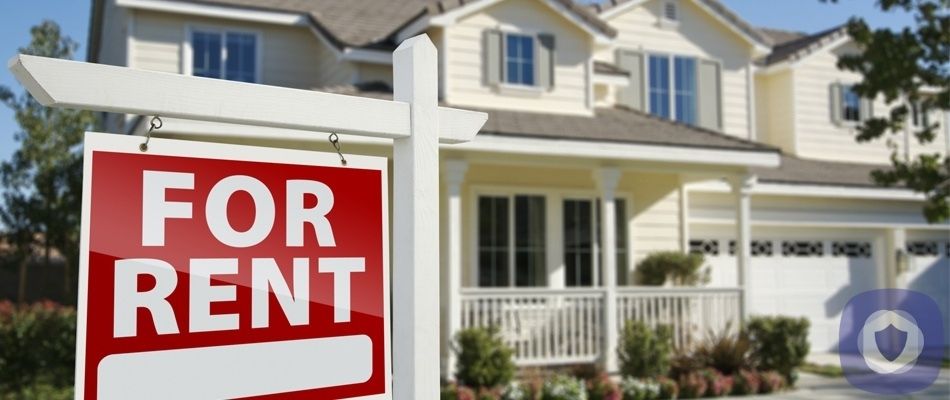If you’re a landlord, you may be wondering: Is it a good idea to install smart home products in your rental property? And is there such a thing as getting too smart?
With more smart home products available than ever today, including everything from smart doorbells to smart lighting and home security systems, it can be difficult to know which products may pay off in a rental property. While they may help improve your property’s security, make it more appealing to renters and potentially save you time and money, there are also concerns, such as cost and privacy issues, to consider.
Here, we take a look at some of the most popular smart home products to help you decide which may and may not be best for your rental properties.
Related: Our picks for the best smart home security systems
What smart home devices should I consider for my rental property?
Whether you’re outfitting a property from head to toe or want to choose just a few key products, you should first consider the type of property you own and the renters you tend to and/or want to attract. Here are some of the most popular smart home devices for rental properties and what you should consider about each.
- Lighting: If you’re paying the electric bill on a property, smart lighting can be a good way to help control costs. Since you can’t go around reminding your renters to turn off the lights when they leave a room or the home, smart lighting allows you and/or your renters to set the lights on timers or control them via an app. There may also be an option for motion detection. Outdoor lights that operate via motion detectors can help deter criminals too. If renters are responsible for the electric bill, they may find smart lighting attractive as it can help keep their costs low.
- Locks: Smart locks may be one of the smartest investments a landlord can make. Rather than handing out keys to renters, smart locks allow you to grant access to a property remotely or via a passcode. The passcode can be changed after each tenant or short-term guest, so you don’t have to worry about changing or rekeying the locks. They also provide a convenient way to let in repairmen, property managers, realtors or others who you want to have temporary access to the property.
- Exterior and doorbell cameras: Being able to see who’s coming and going from your property via an app may be an appealing feature for potential renters, particularly if your property is located in a high-crime area. Exterior cameras are also a good way to help you keep an eye on the property when it’s vacant between renters.
- Security system: Protecting your tenants and their belongings is an important responsibility for a landlord. A home security system can help. While some are expensive and require long-term contracts, others are affordable and can be easily tailored to a rental property’s evolving needs. They may include features like door and window sensors, glass break sensors, cameras and more, all of which can be monitored via an app.
- Smoke and CO detectors: Smart smoke alarms and carbon monoxide detectors take safety a step further than traditional models. Rather than just sounding an alarm, these smart versions can also alert you and/or your renters if there’s a problem via an app. They’ll also send an alert if someone tries to disable them by taking out the batteries or removing the units from their base.
- Smart appliances: Tech-savvy renters who want the latest and greatest may be willing to pay more for properties with smart appliances, such as refrigerators and dishwashers, and they may give your property the edge over others in the area. Smart appliances can alert you to the need for service, repairs or other issues that need to be addressed.
- Flood or moisture detectors: Renters won’t find them particularly exciting, but for a small price, moisture sensors can potentially save landlords big bucks and prevent water damage. Easy to install and affordable, these detectors can alert you to problems like tiny leaks that may otherwise go unnoticed before they turn into major headaches. They can also inform you of big problems like burst pipes that can do major damage quickly.
- Smart home assistants: Alexa, Google Home and the like are fun to use and make certain tasks more convenient. They can also help streamline control of many, if not all, the other smart home products you install.
- Thermostat: A smart thermostat can be a great way to help cut down on energy costs—for you, if you’re paying the bill, or for your renters if it’s their responsibility. Instead of just having the temperature stay stagnant, smart thermostats allow you to program and remotely control the settings based on weather, preferences, who’s home and the time of day. Eco- and budget-conscience renters may find these especially appealing.
Related: Our picks for the top apartment security cameras
How should I choose smart home products for my rental property?
There are a few factors to consider when deciding which smart home products are right for the home.
- Cost: While it may be tempting to install all the cool, new technology, try to determine just how much it may pay off when it comes to your potential for rental income. Will it make your property more desirable than another? Will it allow you to rent the property for a higher price? Of course, there are also things like the convenience and peace of mind that some smart home products provide, on which you can’t put a price tag.
- Installation: How difficult is the item to install, and will you have to pay someone to do it for you? Many products are plug-and-play while others require professional installation, which can add to the overall cost.
- Personal preference: While smart home products may appeal to a tech-savvy crowd, other renters may find them intimidating or too complicated to use. You may want to strike a balance to appeal to both preferences, particularly if you turn over renters on a frequent basis.
- Longevity: How long before the latest and greatest smart home product is outdated and replaced by the next new thing? That’s anybody’s guess, but you may want to consider products that have a well-established track record instead of the hottest new thing to hit the market.
- Compatibility with renters’ devices: If your products are specific to certain devices, such as Android or iOS, then they may not work for all renters. You may want to consider those with the most universal compatibility.
- Privacy considerations: While cameras and other smart home products can provide extra security, you also have to be careful about privacy. There are laws as to where you can place cameras (check with your local authorities to determine which ones apply in your area), and you don’t want your renters to feel as if their privacy is being invaded by any monitoring methods.
Final word on choosing smart home devices
Installing smart home products in your rental property can be an easy and cost-effective way to protect your property, be it an apartment, town home, or standalone building. They have the potential to save you time and money and make the property more attractive to potential renters. But not all smart products are a smart investment or work for every situation. Make sure you evaluate the specific needs of your property and your goals for it in order to choose the best ones.
This article has been reviewed and approved by Officer Banta.

Officer Banta is the official SecurityNerd home security and safety expert. A member of the Biloxi Police Department for over 24 years, Officer Banta reviews all articles before lending his stamp of approval. Click here for more information on Officer Banta and the rest of our team.

